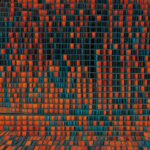Table of Contents
Have you ever noticed a strange change in the visual quality of TV content? Whether you’re watching your favorite movie or binge-watching a TV series, sometimes the picture may seem different. This difference may be the result of an effect commonly known as the Soap Opera Effect.
In this article, we will explore this phenomenon that impacts the viewing experience for many TV watchers. From defining the Soap Opera Effect to discussing its impact on the overall viewing experience, we will delve into the reasons why many people find it distracting while others prefer it.
If you’re someone who enjoys watching TV, understanding the Soap Opera Effect can help you make more informed decisions when selecting your TV settings and choosing your favorite programs.
Key Takeaways
- The Soap Opera Effect is a visual phenomenon that affects the quality of TV content.
- Some viewers find the smoother visuals produced by the effect desirable, while others find them distracting or unnatural.
- Exploring the impact of the Soap Opera Effect can help TV watchers make informed decisions when setting up their devices and watching their favorite programs.
What is the Soap Opera Effect?
The Soap Opera Effect is a phenomenon that occurs when the motion smoothing feature on a TV is turned on. This feature creates a sense of movement between frames, resulting in a smoother-looking image that can resemble a soap opera or telenovela.
Origins of the Soap Opera Effect
The Soap Opera Effect first appeared in TV sets in the mid-2000s as manufacturers began integrating motion smoothing technology, also known as video interpolation, to enhance the viewing experience. While motion smoothing can reduce motion blur and judder, it can also produce an image that looks too smooth.
Technical Aspects of the Soap Opera Effect
The Soap Opera Effect is caused by the frame interpolation process, where the TV creates entirely new frames to fill in the gaps between existing ones. This process can cause a loss of detail and make the image appear less natural.
Why is it called an “effect”?
The Soap Opera Effect is called an “effect” because it goes beyond simple video grading or colour correction. It physically alters the image by adding new frames, changing the way the content is presented on-screen.
How it affects the visual quality of TV content
The Soap Opera Effect has a mixed impact on the visual quality of TV content. While it can make action scenes look smoother and more fluid, it can also make movies and shows look unrealistic. The effect may look too artificial or create a bizarre sensation that some viewers find off-putting.
When people see a movie, they should see exactly the movie as the director intended. To create a new effect and apply it to a movie without any consultation should not be allowed. – Tom Cruise
Transforming Your Viewing Experience
When the Soap Opera Effect is turned on, it can drastically transform your viewing experience. The effect produces smoother visuals, making it ideal for sports and action-packed scenes. Viewers can feel more immersed in the content as a result of the enhanced detail.
For some viewers, however, the Soap Opera Effect can be distracting or appear unnatural. The increased frame rate can make the content look more like a soap opera rather than the cinematic masterpiece that was intended. This can lead to a break in the suspension of disbelief and detract from the overall storytelling experience.
Despite the polarizing opinions, the Soap Opera Effect has become a common feature in modern TVs. Manufacturers include it to provide a unique and customizable viewing experience that can be adjusted to each viewer’s preference.
When to Use the Soap Opera Effect
The Soap Opera Effect can be great for certain types of content, such as sports or fast-paced action scenes. The smoother visuals can help you keep up with quick movements and provide enhanced clarity during high-speed motion.
When to Avoid the Soap Opera Effect
For slower-paced content, such as dramas or movies, the Soap Opera Effect may feel out of place. The increased frame rate can make the content look cheap or distract from the intended mood and atmosphere.
Conclusion
In conclusion, the Soap Opera Effect can have both positive and negative effects on the viewing experience. While it may enhance the visuals of certain content, such as sports and action-packed scenes, some viewers find it distracting or unnatural. It is important to understand what the Soap Opera Effect is and how it works to determine whether or not it is something you want to enable on your TV.
If you prefer a more traditional look for your TV’s visuals, you can always adjust or disable the Soap Opera Effect. This can usually be done in the TV’s settings menu, under the motion smoothing or de-judder options. Keep in mind that disabling this feature may result in a choppier or more jerky visual experience, especially in fast-paced scenes.
Ultimately, whether you choose to enable or disable the Soap Opera Effect depends on your personal preferences and the type of content you watch. By understanding the concept and the potential impact it can have on your viewing experience, you can make an informed decision that suits your needs.
FAQ
What causes the Soap Opera Effect in TVs?
The Soap Opera Effect in TVs is caused by motion interpolation technology, which increases the frame rate of video content. This results in smoother and more fluid motion, similar to what you would see in a soap opera or live sports broadcast.
Can I disable the Soap Opera Effect on my TV?
Yes, most modern TVs have the option to disable the Soap Opera Effect. You can usually find this setting in your TV’s picture or display options menu. Disabling it will revert the frame rate back to its original state, giving you a more traditional cinematic look.
Why do some people prefer the Soap Opera Effect?
Some people prefer the Soap Opera Effect because it can make fast-moving scenes appear smoother and more lifelike. It can enhance the viewing experience for certain types of content, such as sports or action movies, as it reduces motion blur and provides greater clarity.
Why do some viewers find the Soap Opera Effect undesirable?
Some viewers find the Soap Opera Effect undesirable because it can make movies and TV shows look unnatural or overly polished. The higher frame rate can give the content a “hyper-real” appearance, which may deviate from the director’s original intent. It can also be distracting for those accustomed to the traditional cinematic look.
Can the Soap Opera Effect be adjusted on my TV?
Yes, many TVs allow you to adjust the intensity of the Soap Opera Effect. This means you can fine-tune the level of motion interpolation to suit your preferences. Some TVs offer different presets or modes for adjusting the Soap Opera Effect, allowing you to find a balance that works for you.













